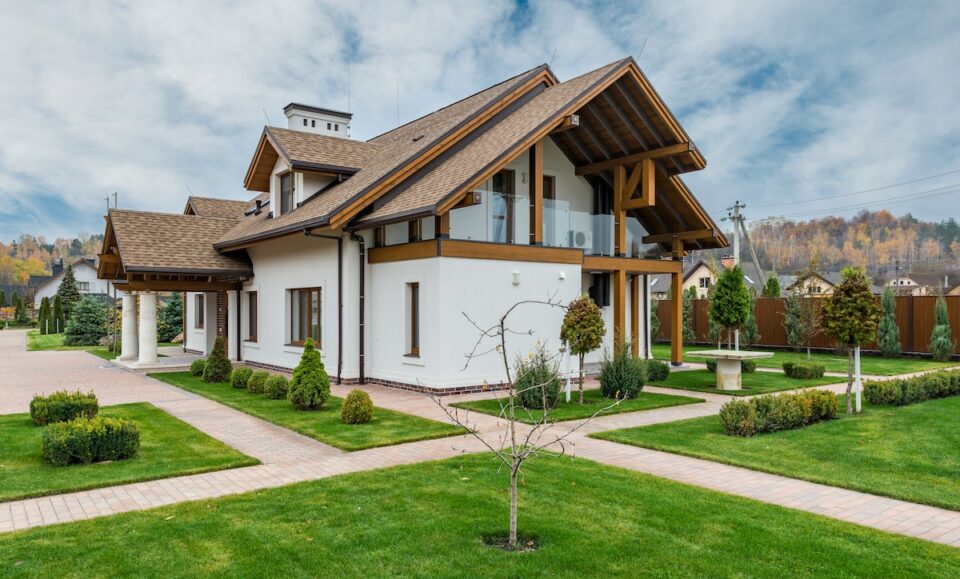As the world continues to evolve, so does the luxury real estate market. High-end properties have long been a fascination to many – a reflection of aspirational living, architectural innovation, and societal progression. In this dynamic landscape, it’s crucial to keep track of emerging trends to make informed decisions and tap into exciting opportunities. This comprehensive article delves into the key trends shaping luxury real estate and provides useful tips for navigating this ever-changing terrain.
Understanding the Current Luxury Real Estate Market
To grasp the ongoing shifts in luxury real estate, we first need to appreciate the industry’s current state. The market today is a product of technological advancements, cultural shifts, and economic conditions. The global health crisis brought by the COVID-19 pandemic has also had a significant impact, causing dramatic changes in the way people live, work, and perceive their homes.
In this era, luxury is not just about opulence and extravagance but also about comfort, convenience, and sustainability. Wealthy buyers are willing to pay a premium for properties that offer a harmonious blend of luxury and functionality. For example, home offices, wellness spaces, and technologically-equipped homes have become particularly desirable. This reshaping of luxury reflects our evolving needs and priorities and showcases the dynamic nature of the real estate market.
Decoding Key Luxury Real Estate Trends
The luxury real estate market is shaped by a multitude of factors and identifying the key trends requires a thorough understanding of these influences. Let’s delve into some of these trends that have been redefining luxury in recent times.
-
Emphasis on Location and Lifestyle
The old adage “Location, Location, Location” still holds true. However, the definition of a prime location has broadened to include more than just city centers or beachfronts. Buyers now consider aspects like proximity to nature, community culture, and lifestyle amenities while deciding on a location. As the COVID-19 pandemic has shown, having access to open spaces and a tight-knit community can significantly enhance one’s quality of life.
-
Rise of Tech-Enabled Homes
With technology becoming integral to our daily lives, tech-enabled homes are on the rise. Smart homes, equipped with automation systems, advanced security, and environmentally friendly technologies, are in high demand. These technologies not only provide convenience but also cater to the increased focus on sustainability, health, and safety.
-
Demand for Personalized Spaces
Buyers today seek personalized spaces that reflect their lifestyle, tastes, and preferences. Customizable homes that offer the flexibility to adapt and change are gaining popularity. Buyers value the ability to tailor their homes to their evolving needs, which could include creating private workspaces or wellness corners.
-
Sustainability and Wellness
Sustainability and wellness have emerged as critical elements in luxury real estate. High-end buyers are increasingly drawn towards properties that incorporate eco-friendly design, energy-efficient systems, and wellness features like air filtration systems and natural lighting. These trends highlight the growing consumer consciousness towards health and the environment.
Tips for Navigating the Luxury Real Estate Market

Whether you’re a buyer, seller, or an investor, navigating the luxury real estate market requires strategic planning and deep market knowledge. Here are some tips that could guide your journey in this dynamic marketplace.
-
Assess Your Priorities
Identify your needs, wants, and long-term goals. Consider factors such as the location, property type, amenities, and price range. Remember that a luxury property is not just an acquisition; it’s an investment in a lifestyle.
-
Conduct Thorough Research
Research is key in the luxury real estate market. Familiarize yourself with market trends, property prices, and potential growth areas. Reliable resources like the National Association of Realtors, Knight Frank’s Global Wealth Report, and Savills World Research can provide valuable insights.
-
Work With a Luxury Real Estate Specialist
A knowledgeable real estate professional can help navigate the complexities of luxury transactions. They can provide expert guidance, exclusive access to listings, and negotiation assistance.
-
Ensure Financial Preparedness
Proof of funds or a mortgage pre-approval is typically required to tour a luxury property. It’s important to have your finances in order before entering the market. Consult with financial advisors or mortgage specialists to understand your financial standing and borrowing capacity.
-
Look Beyond Photos
While online listings and virtual tours are helpful, they cannot replace the experience of visiting the property. If possible, tour the property to appreciate the scale, finishes, and the neighborhood’s feel.
Conclusion
Luxury real estate is much more than a display of affluence; it’s a reflection of societal shifts and personal aspirations. As the market continues to evolve, keeping track of the emerging trends can help stakeholders make informed decisions. From understanding the importance of location and lifestyle to leveraging technology and promoting sustainability, the luxury real estate market offers a plethora of opportunities for those willing to delve deep and adapt to its dynamic nature. The journey, though complex, can be made smoother with proper planning, thorough research, and expert guidance.

